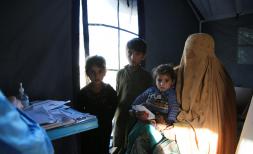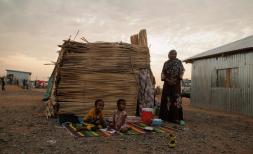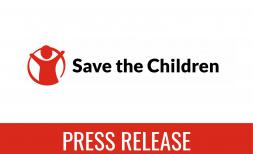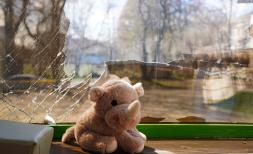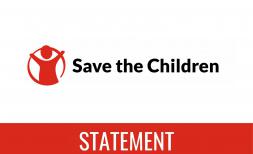Nagorno-Karabakh fighting leaves children who fled the conflict in distress
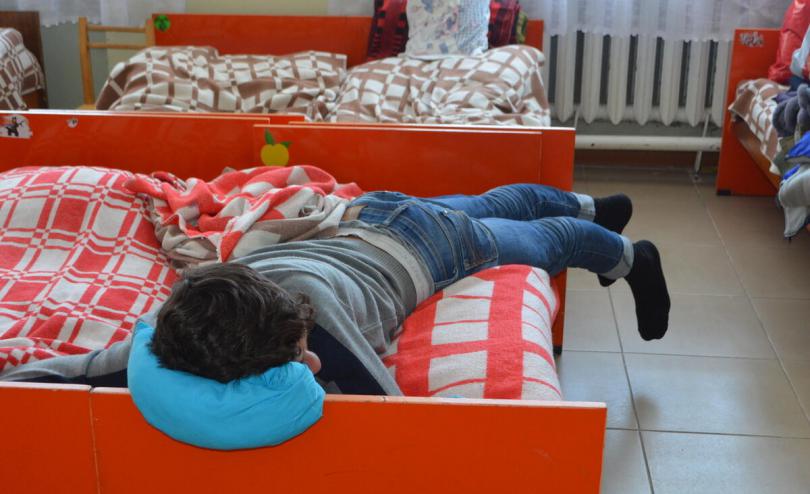
Children who fled the violence from Nagorno-Karabakh to Armenia are showing signs of distress such as anxiety, depression and sleeplessness, a Save the Children team has found.
Of the thousands fleeing the armed conflict, the vast majority are children. While most of them have found shelter, food and water through local authorities, relatives and friends, Save the Children’s team found signs of stress, sleeping problems and fear among the girls and boys seeking safety.
Fighting in Nagorno-Karabakh has been raging for almost a month, forcing thousands of people to flee and resulting casualties among civilians.[1] The parties to the conflict have twice agreed ceasefires, but figthing continued, putting further strain on the lives of children, Save the Children warned.[2]
An assessment of the most urgent needs of children in Goris, Armenia, has found that children are showing signs of anxiety and sleep deprivation, especially those who do not have a family member with them. With winter coming, Save the Childrne’s team also found many children are in dire need of items such as warm clothes and blankets.
Aline*, five-year-old girl, said, “I am scared, because they shoot. It’s good here, we will stay here [in the shelter], I am scared of the planes.”
Levon*, a seven-year-old boy, said, “I was too scared. I wait for my dad to return safely because I worry and miss him so much.”
The team also concluded that women and girls are particularly vulnerable; they are manifesting clear emotional distress and have limited access to sexual and reproductive health services and hygiene supplies.
With an average of 400-600 daily arrivals over the past two weeks, shelters in Armenia have almost reached full capacity, Save the Children said. The majority of pre-schools in Goris and rural communities are now being used as shelters, even though they have insufficient beds or bathing facilities, exacerbating the impact on children’s wellbeing and dignity.
“Some of the children have seen terrible things. And with winter approaching, vulnerable people fleeing the conflict are facing the threat of cold and illness in overcrowded conditions. This is of great concern, especially with COVID-19 cases sharply increasing[3]. Our teams found a group of six people, including two children and four adults, staying in a room of 12 square metres, with only two beds, constant power cuts and no heating. Many children have to live like this, now,” said Irina Saghoyan, Save the Children’s Director for Eastern Europe.
“Most of them come with nothing but a small sum of money. They have to rely on free food and shelter. These people will be facing very harsh months ahead unless their needs are immediately addressed.”
Save the Children, together with local partners, will be providing psychosocial support for children and mothers, hygiene kits, warm clothes and kits with materials for new-borns such as diapers, as well as cash assistance to help cover basic needs for food and clothing.
Only an immediate and enduring ceasefire can end the suffering of children in Nagorno-Karabakh and other affected regions. Save the Children is calling on all parties to the conflict for the cessation of hostilities to ensure the safety and protection of civilians and children.
Notes to editors:
- Save the Children’s Rapid Needs Assessment was conducted in Goris town, Verishen, Khndzoresk and Vorotan rural settlements (each at 7-15 km proximity from Goris town) between October 7-9, 2020. Goris town is the closest urban setting to the Nagorno-Karabakh border. Therefore it has been the first option from the displaced people to find shelter there or use it as a transit point to move to other provinces.
- Key Informant Interviews found that about 80% of displaced are children, and the rest are women and elderly.
- There have been no official numbers related to displacement in Nagorno-Karabakh, but estimates as per NK Ombudsman suggest that almost half of the region’s population, or 75,000 people, have already fled.
- All seven kindergartens in Goris are currently non-operational, serving as shelters for displaced families.
- We have photo content available here.
[1] https://www.icrc.org/en/document/nagorno-karabakh-conflict-civilians-bearing-brunt-surge-violence
[2] https://www.bbc.co.uk/news/world-europe-54586437
[3] According to WHO numbers, 21 October saw a recorded of Covid-19 cases in one day, continuing a pattern of increasing numbers in October https://covid19.who.int/region/euro/country/am
For more information or interview requests, kindly reach out to:
Ahmed Bayram, Ahmed.Bayram@savethechildren.org / +961 71 562 855
Faiz Jamil, faiz.jamil@savethechildren.org / +44 7542 596542
Out-of-hours: Media@savethechildren.org.uk / +44 7831 650 409
